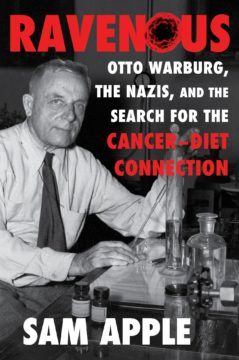Seth Mnookin in The New York Times:
 When the Nazis seized power in March 1933, it was not unusual for major scientific institutes to be led by Nobel laureates with Jewish roots: Albert Einstein and Otto Meyerhof, both Jewish, ran prestigious centers of physics and medical research; Fritz Haber, who’d converted from Judaism in the late 19th century, ran a chemistry institute; and Otto Warburg, who was raised as a Protestant but had two Jewish grandparents, was the director of a recently opened center for cell physiology.
When the Nazis seized power in March 1933, it was not unusual for major scientific institutes to be led by Nobel laureates with Jewish roots: Albert Einstein and Otto Meyerhof, both Jewish, ran prestigious centers of physics and medical research; Fritz Haber, who’d converted from Judaism in the late 19th century, ran a chemistry institute; and Otto Warburg, who was raised as a Protestant but had two Jewish grandparents, was the director of a recently opened center for cell physiology.
…Warburg’s research in the 1920s and 1930s into how living organisms transform fuel, in the form of oxygen and glucose, into energy made him one of the giants of biochemistry. When he won the Nobel Prize in Physiology or Medicine in 1931 for his discovery of the enzyme that triggers our cells to break down glucose molecules with oxygen, it capped a remarkable nine-year period in which he was nominated a total of 49 times. (That could explain his reaction on learning that he had won: “It’s about time.”). The research that Warburg is best known for today, and the work that forms the backbone of “Ravenous,” is his discovery that cancer cells behave differently from healthy cells in two very specific ways: They consume massive amounts of glucose — Apple compares them to ravenous shipwrecked sailors — and they eschew aerobic respiration in favor of fermentation.
…In the end, Warburg’s biggest sin seems to have been that he not only remained in Germany but survived. Apple ends the first chapter detailing Warburg’s life after the war with an anecdote about a dinner party in America during a 1949 trip that he hoped would result in employment. The greatest obstacle to achieving this goal, Apple writes, “might have finally dawned on Warburg” when the wife of a Caltech professor asked him why he’d remained in Germany “when the Nazis were doing such bad things.” The scene then played out: “‘I wanted to protect my co-workers,’ Warburg lied. ‘What could I have done?’ The woman had an idea: ‘You could have committed suicide!’ Warburg and the other dinner guests sat stunned. Someone had finally informed the Emperor of Dahlem of his missing clothes.”
More here.
